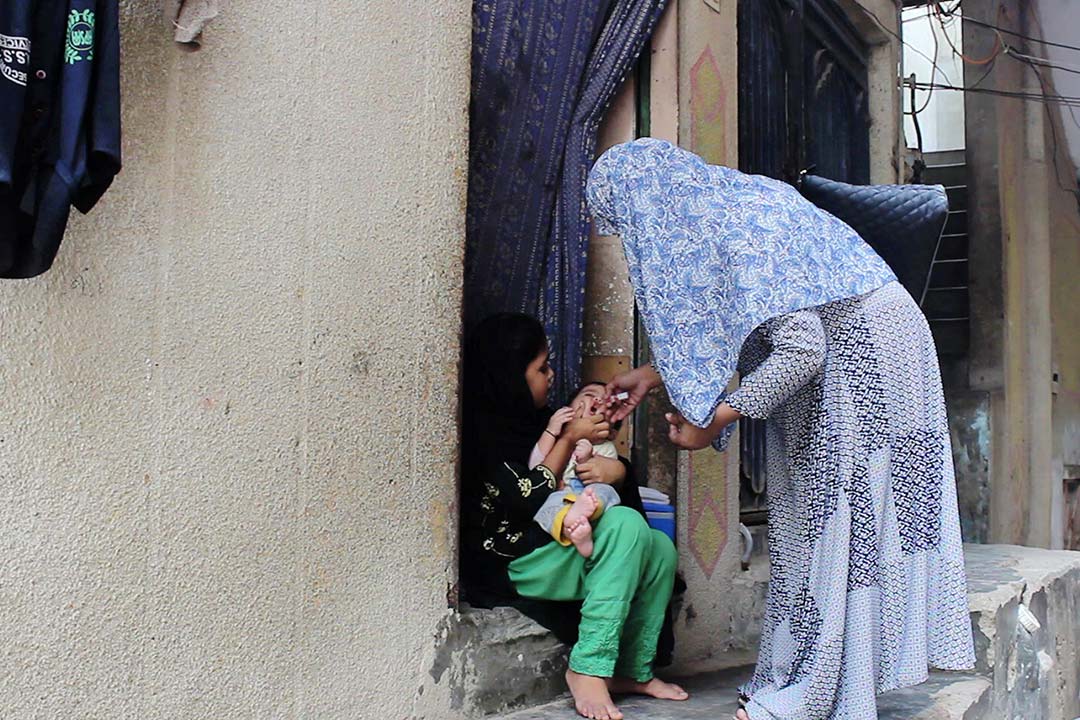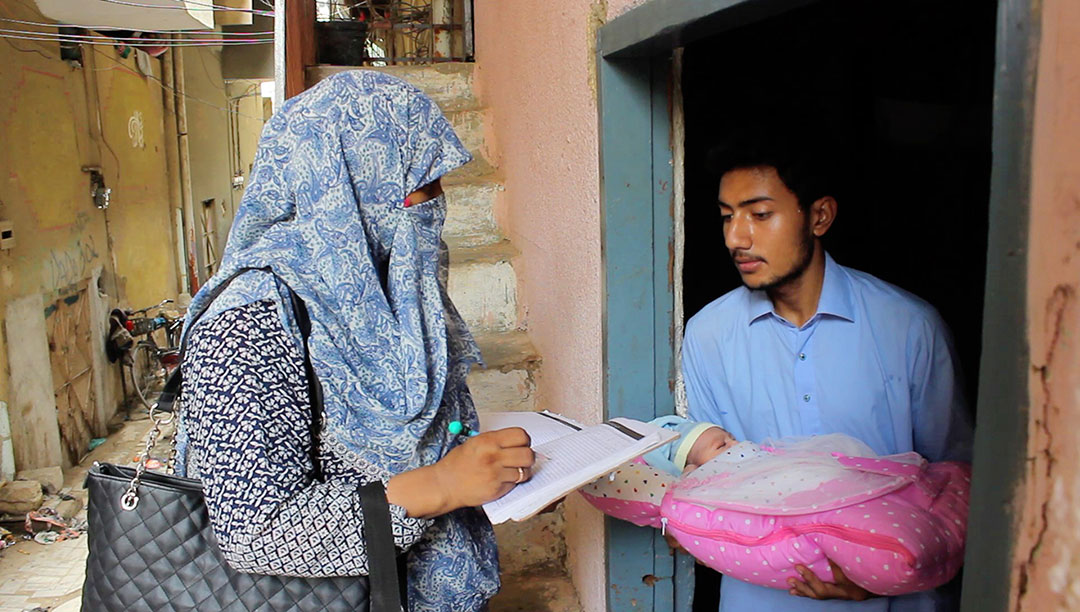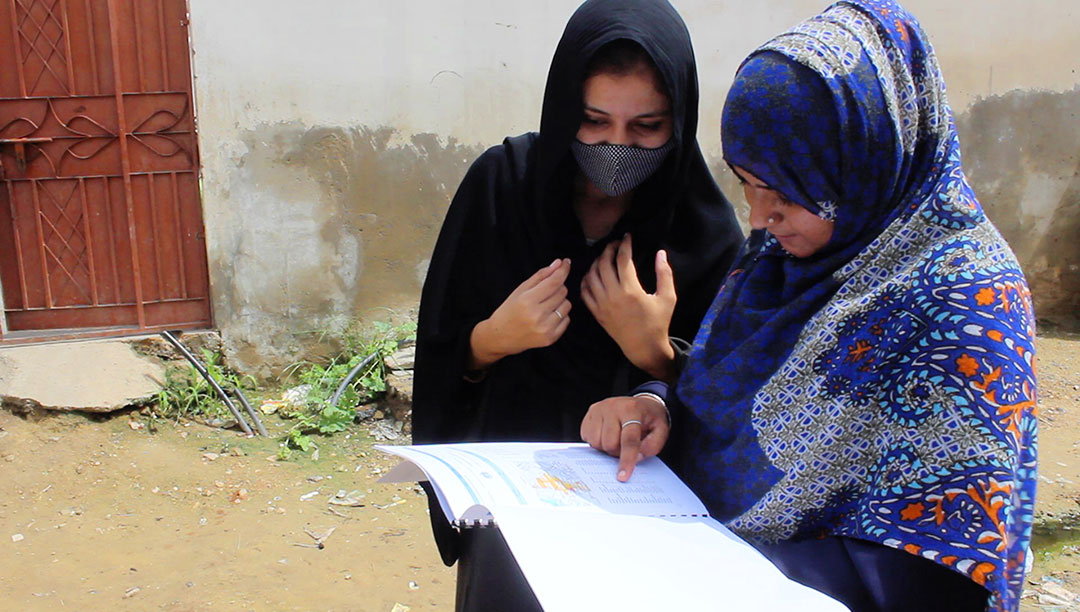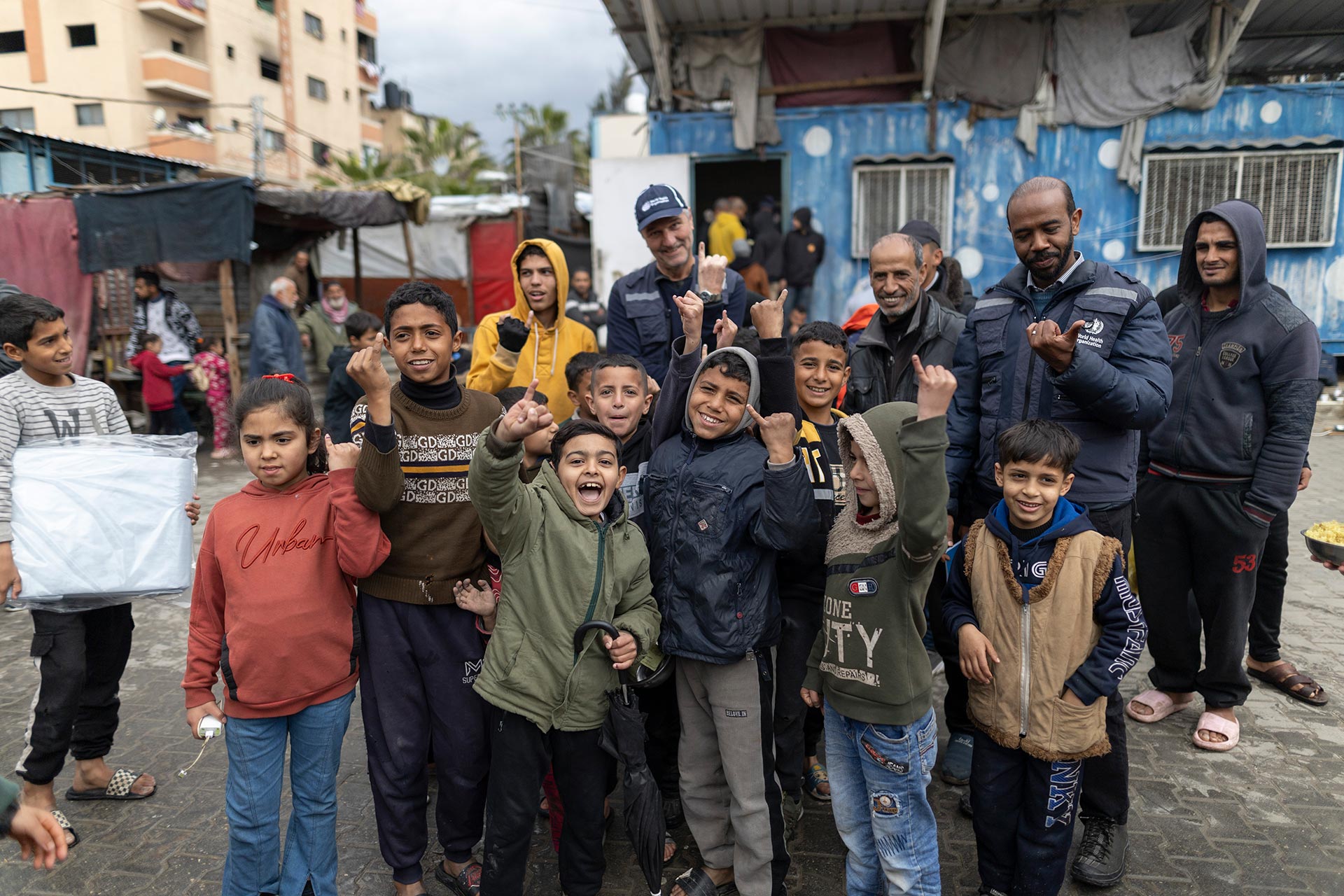
Polio is one of the world’s most devastating diseases. It mainly affects children under five and in one in 200 cases it results in lifelong paralysis. Amazing progress has been made in fighting polio globally: according to UNICEF, there were a reported 20,000 children paralysed by polio in Pakistan in 1994. By 2021, new paralysis cases had dropped to just one child. However, as long as just one child remains infected, all children are at risk.
Identifying and reaching unvaccinated children has been a challenge, but big data startups like Zenysis, in partnership with Pakistan government partners, are making inroads.
Vaccination data is only useful if it’s accurate
Abid Hasan is the project manager for Zenysis – a Gavi INFUSE pacesetter since 2017 – in Pakistan, and he explains the barriers to a more effective vaccination programme in the country:
“Data is like people, in that if data sets don’t talk to each other then they won’t work well. Zenysis gets data and data sets talking.”
Community health workers employed through Pakistan’s Polio Eradication Programme and the Expanded Programme of Immunisation go door to door to collect vaccination data, sometimes using datasheets, sometimes paper, sometimes recording data through WhatsApp. It can be difficult to track families with no formal address, or mobile communities with no fixed address. With 14 million children requiring a polio vaccination every two months, recording accurate data is a mammoth task.
The resulting data can be imperfect, with duplication a particular challenge. This is where Zenysis’s platform comes in. Zenysis software integrates, de-deplicates and harmonises more than 20 siloed datasets, including polio data, immunisation registries and population data.
Combined, the data can be used far more effectively for analysis and, importantly, action on the ground. The result? A new and improved vaccination plan, personalised for each vaccinator’s district – known as a microplan.

Credit: @SalmanMahar
Microplans help health workers target zero-dose children
The enhanced microplans provide health workers with granular information on each child in a region, including their vaccination status, age and address. This information can be used to identify individual children and highlight neighbourhoods where there are clusters of unvaccinated (zero-dose) children. This in turn means better use of time and energy, and better outcomes for communities.
The effect, explains Hasan, is seen in three key areas. “Firstly, the newmicroplans give community health workers the real picture. Second, frontline workers now have a plan to follow and are no longer using broad or inflated data that is hard to actionize. Third, this approach is measurable – when you reach a target, that goes into the system. With accurate data, you can really see the impact.”
Health workers on the ground have seen the difference. Sadaf, a community health worker for Polio, in Karachi, says: “Before the microplans the vaccinators were given a long list of children with duplicate entries in them, and they were extremely difficult to track. After receiving these microplans we can easily decide where to set up our outreach sites and mobilise children to bring them there for vaccination in a systematic manner.”
The impact has been impressive. Since January 2022, the Expanded Programme on Immunisation in the Sindh region has used the Zenysis platform to identify over 28,500 true zero-dose children in the region and vaccinate 12,724 of them with the aid of microplans. In March to June of this year, 3,854 zero-dose children were vaccinated with the help of the new microplans in the regions where they have been implemented.

Credit: @SalmanMahar
Gavi support has been vital in creating goals and driving change
Zenysis was part of Gavi’s INFUSE programme, which connects high-impact innovations with the countries that need them most. Hasan explains that for countries like Pakistan, the investment from Gavi is vital to enhance healthcare budgets, but also to help provide momentum and set goals for vaccination programmes.
Looking ahead, Zenysis is collaborating closely with government partners to expand the platform and vaccination approach throughout Sindh province, tackle other vaccine-preventable diseases, and improve the government’s technical platform management capacity.
As Hasan says, “Not everyone is a data expert – but if you can go on a platform, go into a dashboard, and see all your data into one workspace then you can reach a zero-dose child and their family, and get them vaccinated.”
And with each child vaccinated, we get a step closer to a world where infection by wild poliovirus is a thing of the past.
Reposted with permission from gavi.org



